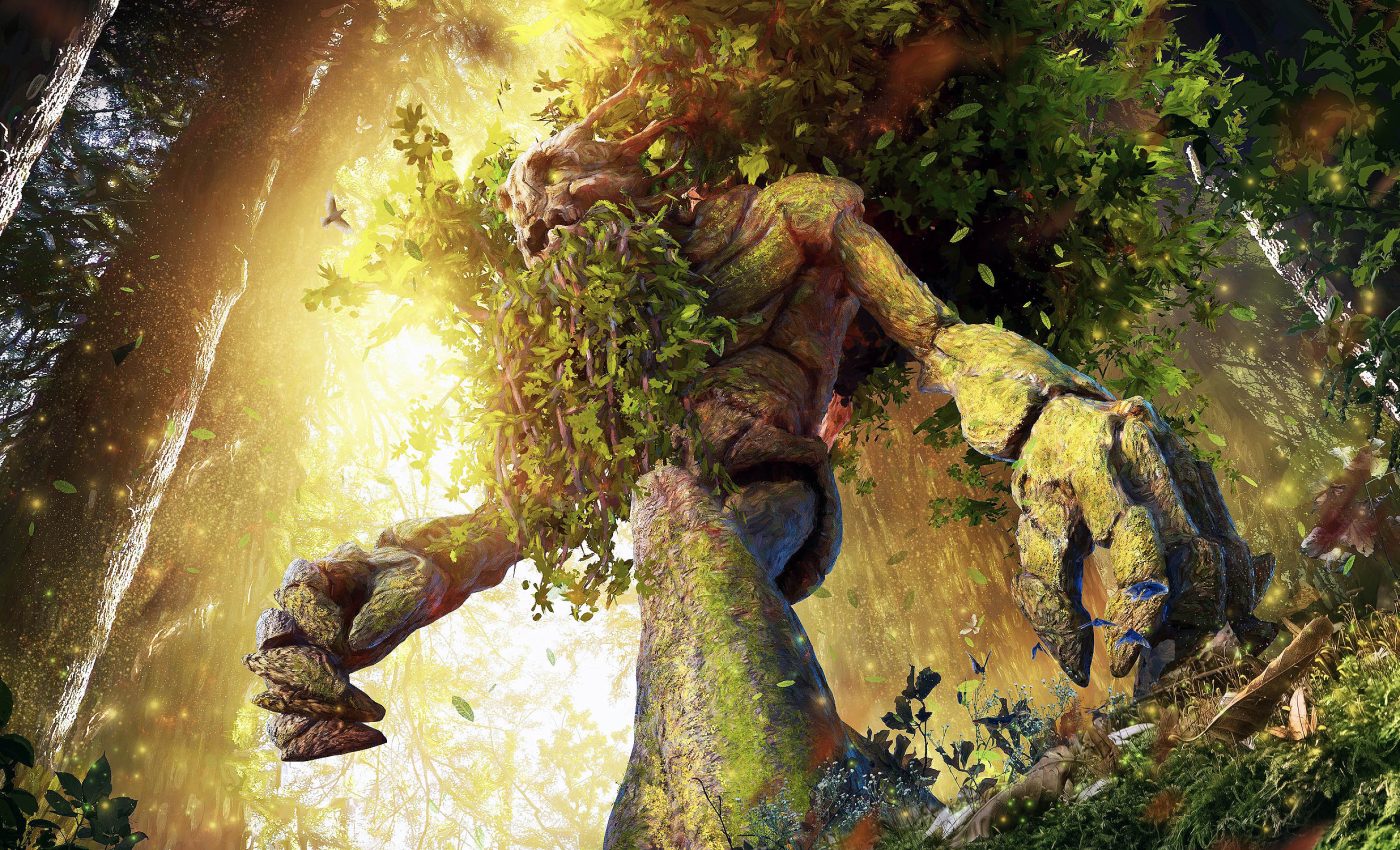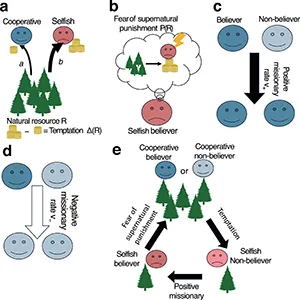
Fear of 'nature spirits' may help prevent environmental harm, new study shows
For most of human history, people believed nature had a spirit. Mountains weren’t just rocks – they had guardians. Rivers weren’t just water – they had gods. In many cultures, harming the land wasn’t just careless – it was dangerous. You could anger something powerful.
People didn’t just tell these stories for fun. They believed them, and that belief shaped how they treated the land and natural resources. If you thought a forest spirit was watching, you probably wouldn’t grab your axe so quickly.
Even if you had doubts, the people around you might believe – and that was enough to make you think twice.
Now, the situation is different. The environment is under pressure from human activities including overexploitation, clear-cutting, and pollution.
Governments step in with laws and fines but, let’s be honest, those systems aren’t cheap, and they don’t always work. So what else is there?
Can belief in spirits help save nature?
A team of researchers in Japan started wondering about something you don’t hear every day: could old-school beliefs in nature spirits actually help protect the environment today?
The researchers weren’t looking to revive ancient religions or make anyone believe in the supernatural. What they really wanted to know was whether the fear of some invisible punishment could still get people to treat nature with more care.
To dig into this idea, the team turned to something called evolutionary game theory. It’s a way of studying how different behaviors spread or disappear in a group, depending on what benefits people the most.
Building a model to test an idea
The researchers built a model that looked at three things: how strongly people believe in supernatural punishment, how much they use up natural resources, and how much of those resources are left.
The results of the analysis were interesting. When people believed there might be a spiritual consequence for overusing nature, they were more likely to hold back.
That gave the environment a chance to recover. But if they stopped believing, the fear faded, and the exploitation returned.
When stories become rules
The study found that for supernatural punishment to work, two things had to be true.
First, people needed to believe the punishment was serious enough to scare them. Second, it couldn’t be so extreme that it seemed unbelievable.
If both conditions were met, the belief could actually spread. And when that happened, the fear of supernatural punishment worked like a self-policing system – no cops, no cameras. Just stories, memory, and culture.

Some nature spirit stories stick
The lead researcher, Dr. Shota Shibasaki from Doshisha University, grew up in Japan, where these stories were part of everyday life.
“I am interested in how human culture, including supernatural beliefs, affects the natural environment and vice versa. Growing up in Japan, I am familiar with folklore that portrayed nature as sacred and spiritually guarded,’ said Dr. Shibasaki.
“These stories left a lasting impression on me and sparked my curiosity about their societal functions.”
“As a researcher, I hoped to bridge the gap between the abstract mathematical model and my cultural experiences, ultimately contributing to a more holistic understanding of human-nature interactions.”
Promoting nature spirit beliefs
The team found that stories about spirits or gods protecting nature are often catchy and memorable. People share them.
They get passed down. And when respected leaders believe in them – or at least talk about them – others tend to follow.
This could be especially useful in places where law enforcement is limited but traditional culture is still strong. Instead of trying to replace those traditions with outside rules, governments and organizations could work with them.
Culture isn’t just decoration
The study shows that conservation isn’t only about money or laws or technology. It’s also about culture. Beliefs and stories can shape what people do – and what they don’t do.
“Ultimately, this work contributes to a broader understanding of how human societies can have more harmonious relationships with nature – not just through regulation or technology but also through supernatural belief and culture,” concluded Dr. Shibasaki.
In a world racing to fix the damage we’ve done, maybe it’s time to look back as well as forward. Not for magic, but for the power of belief, tradition, and fear that doesn’t need a badge to be effective.
The research team included experts from the Japan Advanced Institute of Science and Technology, Hokkaido Musashi Women’s University, Kokugakuin University, and Yokohama National University.
The full study was published in the journal Humanities and Social Sciences Communications.
—–
Like what you read? Subscribe to our newsletter for engaging articles, exclusive content, and the latest updates.
Check us out on EarthSnap, a free app brought to you by Eric Ralls and Earth.com.
—–













